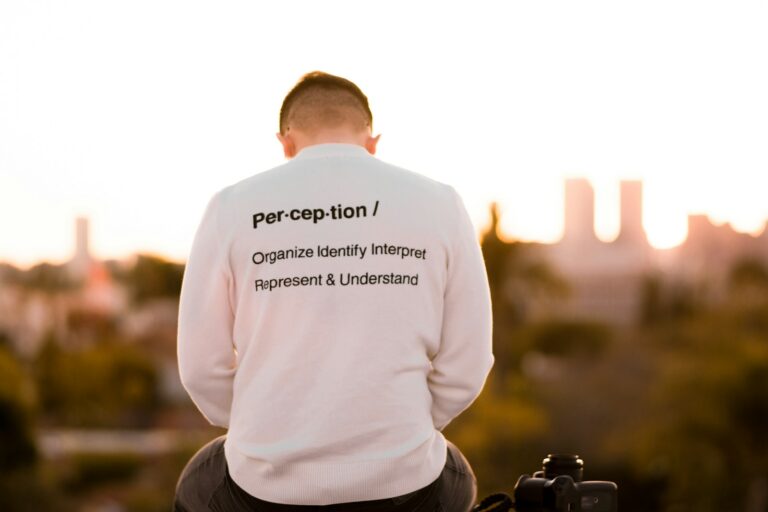How to move on when I find out i’m incompatible with a woman
Introduction: The Art of Letting Go
Embracing the Emotional Rollercoaster Ride
Life, in its absolute unfathomable complexity, often mirrors the unpredictable twists and turns of an exhilarating roller coaster ride. Just when you think you’ve summited the peak of your happiness, you might find yourself plunging into a void of disappointment and heartbreak.
Such is the reality when love takes a detour and leads you to discover incompatibility with your significant other. It’s not just about losing someone; it’s also about grappling with feelings of anger, denial, sadness, acceptance, and eventually hoping for a closure that seems elusive.
The journey may be fraught with emotional turmoil, but it is essential to remember that these emotions are there for a reason. They are your mind’s way of processing pain and preparing for healing.
Let them wash over you like waves ebbing on the shore; they’ll recede soon enough. But don’t ignore them or push them away—accept their existence as part of your human condition.
There will be times when this rollercoaster ride feels unbearably long and tortuous—moments when loneliness engulfs your spirit or despair blankets your hope—but bear in mind that every ascent follows a descent; every dawn follows dusk. Grit through these moments because they are transient—they too shall pass.
Recognizing Incompatibility: A Crucial Aspect in Relationships
Understanding incompatibility is like knowing how to read the compass for love—it helps direct you towards genuine compatibility while steering clear from false attractions that might seem appealing at first glance but have little substance beneath their shiny surface. Incompatibility isn’t merely about having different tastes in music or food—it permeates deeper into our values, beliefs, life goals, communication styles—the very essence of what makes us who we are. When these fundamental aspects clash rather than complement each other’s personalities—no matter how profound your love may be—the relationship becomes akin to trying to piece together a puzzle with mismatched fragments.
The importance of recognizing this cannot be overstressed. Ignoring signs can lead to relationships fraught with frustration, resentment or dissatisfaction—a state far removed from the nurturing ambiance love should ideally create.
So yes! Identifying incompatibility can indeed feel like navigating through an emotional storm at times—heartbreaking even—but if observed correctly, it could guide us towards healthier relationships instead of leading us astray.
Recognizing Incompatibility: The Signs You Can’t Ignore
The Red Flags Flying High
Often, the indicators of incompatibility are subtle red flags that we choose to ignore or fail to acknowledge. They can be as minuscule as constant bickering over trivial matters or may manifest as serious issues such as dishonesty, lack of respect or understanding.
Trust your intuition; it’s capable of picking up on negative energy even when your mind is trying its best to brush it off. In a healthy relationship, disagreements are resolved through open conversations and compromise.
But when you find that you’re perpetually walking on eggshells around her or constantly fearful of triggering a blowout, it’s time to look at these signs with more scrutiny. Red flags could also include manipulative behavior, lack of emotional reciprocity and tendency towards verbal or physical abuse.
Remember, love doesn’t entail tolerating toxicity. It’s crucial to understand that these patterns seldom improve and often become deeply ingrained over time.
The Core Values: A North Star Disconnect
Fundamental differences in core values can be likened to two ships trying desperately to sail in harmony despite their compasses pointing in divergent directions. We construct our lives around our core values; they influence our decisions and shape our expectations from relationships.
If these values aren’t aligned with those of your partner’s, there will be a ceaseless undercurrent of tension brewing beneath the surface. For instance, if ambition drives you while she thrives on contentment with what she has – eventually this factor alone can chip away at the foundation of your bond.
Religion, politics, money management attitudes and views on family planning are other areas where significant differences can lead to grave consequences for the relationship’s longevity. If you find yourself perennially compromising without experiencing fulfillment or mutual respect for each other’s choices – this is a tell-tale sign that your paths may not coincide long-term.
The Triple Threat: Emotional, Mental and Lifestyle Mismatches
Incompatibility isn’t always about dramatic conflicts; more often than not it quietly seeps into relationships through emotional disconnects and lifestyle mismatches. Emotional compatibility revolves around how you both navigate feelings – does she dismiss your emotions?
Or does she tend towards extreme emotional reactions? Mental compatibility delves into intellectual stimulation – do conversations with her leave you enriched or drained?
Are heated debates seen as personal attacks? Lifestyle mismatches encompass areas like socializing patterns (introvert vs extrovert), health habits (fitness enthusiasts vs couch potatoes) etc., which may seem unimportant initially but gradually become sources of friction when ignored consistently over time.
Acceptance: Swallowing the Hard Pill
The Bitter Sweetness of Accepting Reality
Once you’ve identified the signs of incompatibility, the next stage is acceptance. This can be a bitter pill to swallow.
We often invest copious amounts of time, energy and emotions into relationships, hoping they will eventually work out. When they don’t, it feels as though we’ve wasted significant parts of our lives – a thought that’s difficult to bear.
Understanding that your relationship has reached its terminus requires courage and honesty with oneself. You must look at your relationship through a lens unclouded by sentimentality or wishful thinking.
It means acknowledging that despite all those moments filled with laughter and shared secrets, you two are not meant to share life’s journey together. Acknowledging this reality doesn’t negate the beauty of what once was.
It merely places it in its rightful context: as a chapter in your life that has ended so a new one can begin. It won’t happen overnight – acceptance is more of an evolution rather than an instantaneous transformation.
The Calm After The Storm: Embracing Incompatibility
It’s important to understand that being incompatible doesn’t mean either party is wrong or flawed; it simply means both individuals operate on different wavelengths. We all have unique characteristics that define us; they’re what make us ‘us’. If these qualities conflict with another person’s so deeply that it causes constant discord, then perhaps sharing a romantic partnership isn’t what’s best for either individual.
Incompatibility is not a personal failing but rather an issue of fit or match between two distinct individuals. It’s much like trying to fit together two puzzle pieces from entirely different puzzles – no matter how hard you try to force them together or how much you trim off the edges, they’ll never create a harmonious picture.
In essence, embracing incompatibility is about seeing reality for what it truly is: an opportunity for growth and self-discovery. Once we accept this fact, we allow ourselves permission to let go graciously instead of clinging onto something outmoded and confining because we fear being alone or starting over anew.
Emotional Detox: Cleaning out the Heart’s Closet
Sublime Sorrow: Allowing Yourself to Feel the Pain
It’s essential, albeit arduous, to let yourself fully feel the pang of loss when you realize your relationship is on a path of incompatibility. Trying to stifle or ignore these feelings can lead to emotional stagnation and prolong the healing process. Hold space for your emotions, recognize them without judgment, and allow their natural course.
It could range from a pulsating ache in your heart to an overwhelming flood of tears. In this phase of emotional detoxification, it’s okay not always to be okay.
You may find solace in solitude or seek comfort in shared sorrow with close confidants who understand your pain. It’s common to oscillate between moments of grief and fleeting periods of normalcy.
Remember that this is not a sign of weakness but rather a testimony to your human capacity for love and attachment. As paradoxical as it might seem, pain has its own healing power.
Pain demands attention; it forces you into awareness, into the present moment—your body’s way of nudging you towards recovery and renewal. Its intensity bears witness that something significant has ended but also subtly hints at new beginnings that still lie unrevealed.
The Purge: Techniques for Releasing Negative Emotions
Just as one declutters their physical space periodically, so too must we clean our emotional closets—a vital part of personal upkeep often sidelined until crisis looms large like an unwelcome shadow. One efficient method to unclog emotional pipelines is through expressive writing—channeling raw emotions onto paper provides clarity and a sense of release akin to physically unburdening oneself off a heavy load. Pouring out thoughts onto paper creates emotionally charged narratives that can help rationalize feelings and events leading up-to-date.
Physical activity also serves as a potent antidepressant—it could be any form; be it yoga focusing on conscious breathing or high-intensity routines like kickboxing—providing an outlet for pent-up energy while releasing ‘happy hormones,’ endorphins amending mood swings caused by emotional distress. But importantly, meditation promotes mental peace—an anchor in stormy seas—a practice helping one regain control over spiraling thoughts while cultivating mindfulness—shifting focus from what was lost towards appreciating what still remains.
Self-Reflection: Looking at Your Own Reflection in the Pond
The Puzzle of the Past: Identifying What Went Wrong
When the heartache subsides and emotions are no longer turbulent, it’s time to step into your detective shoes and dissect the relationship. It’s a daunting task indeed, to look back and analyze what went wrong.
But remember, this is not about playing the blame game or dwelling on past mistakes; it’s about understanding. Ask yourself probing questions: Was there a recurring argument that fundamentally stemmed from your differences?
Were your life goals diverging paths rather than parallel ones? Was there an unhealthy power dynamic?
Or perhaps love was there but not enough respect? Explore these questions with honesty, without letting emotions cloud your judgment.
Identifying what went wrong is like looking at a distorted image in a funhouse mirror. The reflection might be uncomfortable, even painful to acknowledge.
However, this process will help you gain profound insights about yourself and understand better how you function in relationships. This self-awareness is crucial for future encounters with love.
Life’s Greatest Teacher: Learning From Past Mistakes
After identifying what went wrong comes another challenging yet rewarding phase – learning from those missteps. William Durant beautifully encapsulates its importance when he said, “Education is a progressive discovery of our own ignorance.” In the same vein, learning from past mistakes puts you on a path of growth and self-improvement. Reflect on how you could have handled situations differently or how you could have communicated your feelings more effectively.
Contemplate if there were red flags that you chose to ignore or if there were boundaries which were overstepped. The key here is not to berate yourself over these missteps but to learn from them so as not to repeat them again.
Each mistake is an opportunity for growth; each misunderstanding presents potential for better communication in future relationships. Remember that nobody is born with perfect relational skills; they are honed over time by trial-and-error experiences like these.
So take heart! The journey of self-reflection might be fraught with discomfort but rest assured it paves the way towards personal development and ultimately leads to healthier relationships in future.
Rebuilding Self-Esteem: Becoming Your Own Best Friend Again
The Voyage to Self-Love: Rekindling the Flame Within
In the wake of an emotional severance, it’s paramount to shift our focus inward and attend to the person who has been there for us from the very beginning – ourselves. Focusing on self-love and self-care isn’t just about indulging in bubble baths or occasional treats; it’s a journey of reconnection with our innermost being.
During this period, grant yourself permission to feel. Allow your emotions to flow unrestricted, for they are not a sign of weakness but evidence that you have loved genuinely.
Each tear shed is a testament to your capacity for love and deep affection. Remember, grief is not something you overcome overnight; it’s something you manage as time goes by.
The process of healing can begin with simple acts that reignite joy in everyday life. Indulging in hobbies or activities that you are passionate about can serve as therapeutic outlets.
Whether it’s painting landscapes at dawn or hitting the gym, make sure you immerse yourself in what brings you contentment. Embrace solitude – not as a condition imposed by circumstances but as an opportunity for introspection and self-growth.
Bouncing Back: Reclaiming Your Confidence Post-Breakup
Boosting confidence post-breakup may seem like trying to find stars on a cloudy night—difficult initially but not impossible if we wait for the clouds to part. It is natural to feel diminished after parting ways with someone with whom you were intimately connected, but remember this does not reduce your worth. Begin by acknowledging your strengths—remember times when you achieved something significant or made people around happy?
Those qualities still reside within you; they didn’t desert just because someone else failed to appreciate them fully. A breakup does not strip away your virtues—it only makes them more evident since now they are undiluted by anyone else’s influence.
Make sure each day includes small yet purposeful actions aimed at rebuilding confidence—a morning run, learning new recipes, finishing that book gathering dust on your shelf—little steps lead towards significant changes over time. Surround yourself with positivity—not necessarily people who flatter constantly—but those who genuinely believe in your capabilities and encourage growth.
Most importantly, be patient with yourself during this recovery phase – Rome wasn’t built overnight! Each day won’t be perfect – some days will be harder than others – but remember that progress isn’t always linear; even setbacks can shape us into stronger individuals ready for any future challenges life might throw our way.
On the Threshold of The Social Renaissance: Reconnecting with Friends and Family
Emerging from the cocoon of emotional turmoil after acknowledging incompatibility can be daunting, perhaps even overwhelming. It is during this time that you must remind yourself of the necessity to reconnect with your friends and family. You are not alone on this journey, remember that each of us has our own tribe.
And your tribe is waiting for you, arms wide open. Building bridges back to those who truly matter in your life can be highly therapeutic.
Share your experiences with them; pour out your heart if you feel comfortable doing so. Their perspectives might provide a refreshing new angle on things that you hadn’t considered before.
Immersing yourself in familiar warmth and comfort can expedite healing too. Don’t rush the process though.
You may not feel ready to bear your soul immediately, and that’s perfectly alright. Initiate light conversations; participate in group activities or individual outings based on shared interests – anything that will help reignite the flame of connectedness without pressuring you into deep emotional disclosure before you’re ready.
The Liberating Waltz: Engaging in Social Activities Without a Romantic Focus
As much as it might seem tempting – or perhaps even instinctual – to plunge headfirst into another romantic endeavor post-breakup, it’s important not to rush into anything prematurely. Instead, consider engaging in social activities devoid of any romantic focus as an antidote to loneliness or anxiety. Dust off those dancing shoes, sign up for painting classes, go hiking or join a book club – whatever piques your interest is fair game!
The objective here is two-fold: firstly it’s about rekindling passions which might’ve taken a backseat during the relationship; secondly it’s about creating opportunities for interactions with an array of individuals without any pressure attached whatsoever. Submerging yourself in diverse and stimulating environments allows for personal growth while simultaneously keeping loneliness at bay.
It’s simply about enjoying life yes, but also often fosters unexpected friendships along the way! Remember though; patience is key here as well – there’s no rush on this journey towards recovery and self-discovery.
Future Relationships: Lessons for Moving Forward
Applying Lessons Learned to Future Relationships
One of the most efficacious outcomes of past incompatibilities is the abundance of lessons they offer. In fact, every experience, no matter how excruciating it may seem at the time, is a hidden treasure trove of wisdom and life lessons. The key here is to not let these experiences go to waste and use them as stepping stones in your onward journey.
Past relationships allow you to learn about your own needs, wants, deal-breakers, and red flags that you should be alert for in future relationships. They can help you identify patterns that may not be serving your best interests.
For example, if you’ve found yourself falling for women who are emotionally unavailable time and again, this is a pattern worth exploring and breaking. In addition, every relationship teaches you something new about yourself.
You might uncover facets of your personality or preferences you weren’t previously aware of. All these insights form an invaluable repository that can guide you in making smarter choices when fostering new relationships.
Redefining Your Relationship Expectations
Redefining expectations post-incompatibility does not mean lowering them; rather it implies setting healthier ones based on what truly matters to you now. The concept revolves around understanding what’s negotiable versus non-negotiable in a relationship. Your ‘wish list’ might need an overhaul after an incompatible relationship—perhaps traits like empathy or emotional availability have taken precedence over physical attributes or shared hobbies now.
Assessing such shifts in priorities can greatly influence future compatibility prospects. Last but certainly not least: remember that self-love should remain constant irrespective of changing expectations or partners.
No amount of compatibility can substitute the fulfillment derived from being at peace with oneself. Guarding this inner harmony while exploring new relationships is paramount towards building meaningful connections moving forward.
Embracing Incompatibility as a Part of Life’s Journey: The Closing Chapter
A Recap of our Odyssey
Let us revisit the key milestones in our journey as we set to close this chapter. We started by acknowledging that letting go is indeed an art – a delicate balance between acceptance and resistance.
We dug deep into recognizing incompatibility, unveiling those subtle red flags often dismissed in the whirlwind of emotions. We spoke about how vital it is to hold onto our core values and understand when they are at odds with those of another person.
We delved into the mismatching aspects of emotional, mental, and lifestyle parameters that signal incompatibility. Next, we navigated through the seas of acceptance – a challenging yet crucial part of the process.
We explored why it’s okay, even necessary, to be incompatible sometimes. From there, we ventured into an emotional detox where feeling pain was not shied away from but rather embraced for its cathartic potential.
Turning Incompatibility into Personal Growth: The Phoenix Rises
The beauty of difficult experiences lies within their transformative power – if you allow it. Finding out you’re incompatible with someone you cared about can feel like your world is crumbling down around you. But it’s within these ruins that you find priceless gems – lessons learned and strengths discovered.
This experience has taught us to reflect on ourselves honestly without harsh judgment or regret but with constructive criticism meant for self-improvement. It pushed us towards rebuilding self-esteem, recapturing our identity stripped off relational dependencies.
We also learned to ease back into social circles without rushing into another romantic entanglement too soon; a testament to our resilience and adaptability. And last but not least, we understood how these invaluable lessons shape future relationships, refining our expectations and guiding us towards healthier bonds.
The Sun Will Rise Again: A Hopeful Finale
In concluding this journey together through heartbreak and healing after realizing incompatibility with a significant other, let’s remember one thing above all else: This experience does not define your worth or predict your future relationships’ fate. Take heart in knowing that each step taken through this process brings growth and wisdom beyond measure.
You have braved tumultuous seas only to find yourself stronger having weathered the storm. Embrace incompatibility as merely one chapter in life’s vast library – there are countless unwritten ones waiting just ahead!






